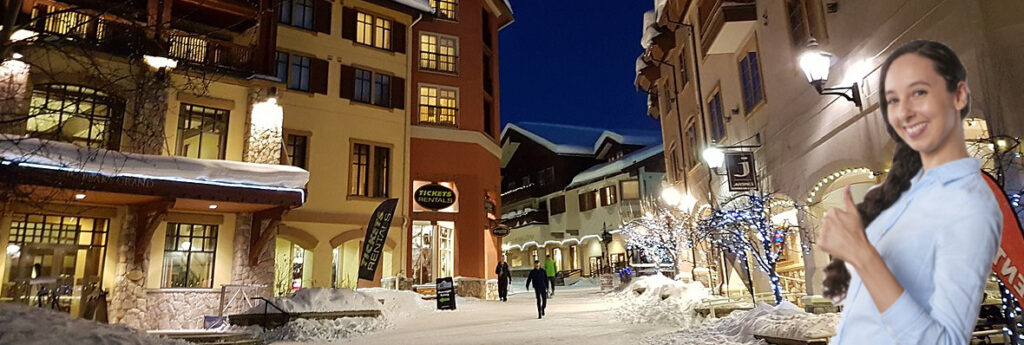The familiar sounds of resort workers with Australian and English accents may be rarer this year compared to previous ones, but if you listen hard enough you can still pick them up.
There are, of course, workers who have immigrated permanently to Canada or are in the process of doing so.
But there are also some who have come via the ever popular working holiday visas under the International Experience Canada program, a popular program for citizens of many countries looking to work a year or two in Canada and who are under the age of 30 or 35 (depending on their country of origin).
Zoe Lynch, from England, is currently in the second year of her two-year working holiday visa.
She spent last season working at SilverStar Mountain Resort, and she’s spending this year in Sun Peaks.
Under rules for the International Experience Canada (IEC) program, participants are able to re-enter the country provided they have already been in the country and activated their working visa.
The IEC program is still operating in COVID-times, but does face some changes.
These include requiring participants to prove they have employment, by showing border agents a written note from their employer saying that their business is continuing to operate. Participants must also show border agents proof of sufficient health care insurance.
Like all travellers, IEC participants are required to quarantine for 14 days upon entering the country.
Under an accommodation provided by the government, participants who are granted a working visa are able to extend their working visa by 12 months if they are unable to travel due to COVID-19 restrictions.
Between stints in SilverStar and Sun Peaks, Lynch spent six months at home, having fled Canada when things went into lockdown in the spring.
Lynch said the majority of other people she worked with in SilverStar chose to go home, but not all came back.
“I was like, `What if I can’t get a job, and I don’t have any income?’ How can I afford that?” she explained. “At the time, I wasn’t aware of the EI employment Insurance funding, which I would have been eligible for. But yeah, if I’d known that information before, that would have changed things.”
At home, Lynch was able to secure work at a Domino’s delivering pizza, but thoughts of what she was missing in Canada stuck with her.
Despite the unnerving prospect of travelling during a global pandemic, Lynch decided to bite the bullet, having loved her first year in B.C.’s Interior.
“I wanted to improve with snowboarding, and I wanted to catch up with friends and see how they’re getting on,” she explained. “And I also wanted to experience a different resort.”
Moreover, there was a lot more of the country she wanted to see, and she wanted to take full advantage of her two-year visa.
“There’s just so much to see in Canada, even in B.C. alone, it’s just such a vast area, with so many different things to see and do.”
Lynch said she did have reservations, including concern the season could be stopped early. Many resorts in Europe have closed over concern of the spread of COVID-19.
Lynch said she didn’t have any trouble when it came to entering the country.
But that wasn’t the case for other people she knows.
Some, with valid working visas, were turned away at the airport, she said.
“It seemed very hit and miss whether or not you could even kind of come back into the country,” said Lynch.
As part of her return, Lynch (and for that matter any travellers without COVID-19 symptoms entering Canada from abroad) was required to quarantine for 14 days.
Lynch completed her quarantine at a garlic farm in Armstrong, where she later volunteered.
“It was just a really nice place to be quarantined, in comparison to the places I’ve seen,” she said.
Being a staff member in Sun Peaks is of course far different than in previous years.
“I think everyone’s been really respectful of the new rules,” she said. “Everyone just kind of seems very grateful to be here.”
Moreover, Lynch said she likes how Canada is handling the crisis, praising the approach in comparison to that of her native country, which recently went into its second strict lockdown.
“I’m not sure if you’re keeping up with the news, but things are not going very well in England at the moment,” she remarked.
While the pandemic has been challenging in many ways, Lynch has managed to identify a few silver linings, one of which being that landlords are no longer able to pack people into rented rooms, as has been so common practice in B.C. ski in years past.
“I’m quite grateful that this season I have a lot of room to myself, whereas last year, there were six of us in a room,” she said.”So that’s been one positive thing about COVID.”

